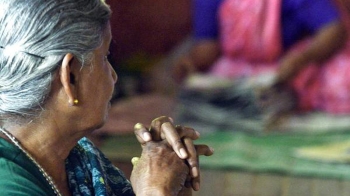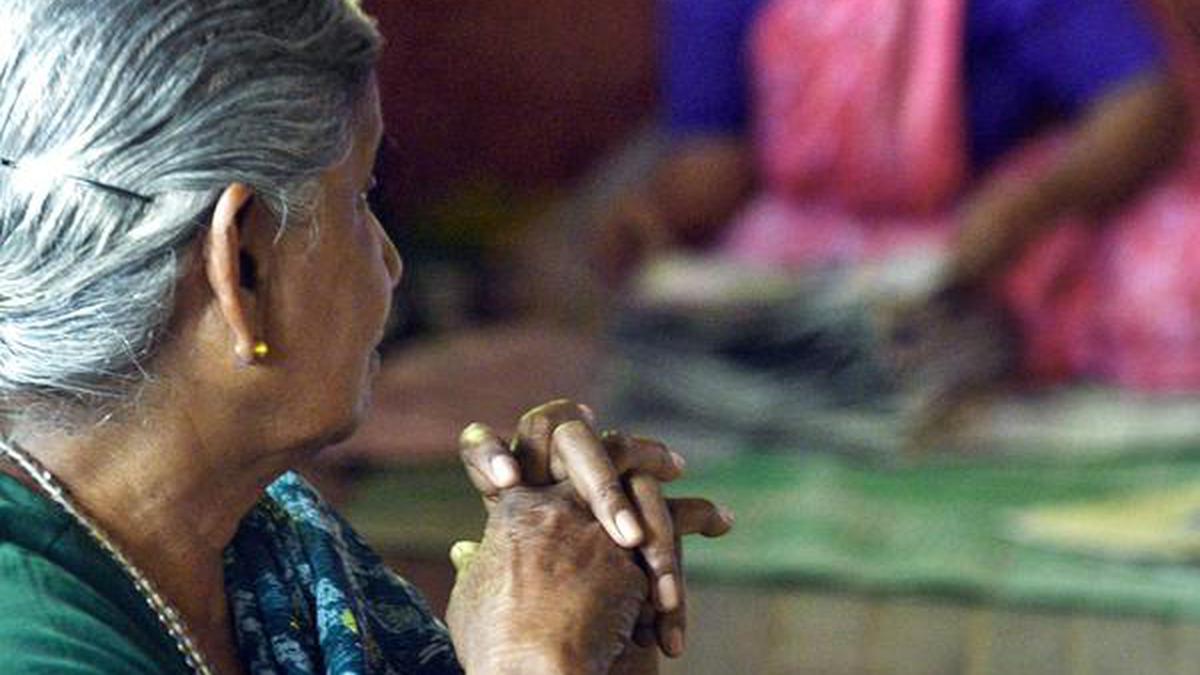
.png) Aarti
Aarti

India is home to nearly 138 million elderly people who include 67 million men and 71 million women. According to projections, the number of elderly women is expected to touch 101 million in 2031.
Time and again we read about how some elderly parents are ill treated by their own near and dear ones, which is cause for worry. That increasing number of people are being abandoned by their families and forced to fend for themselves is rather disconcerting. Is it a reflection of the breakdown of systems to take care of the elderly in society? In many cases, elders are denied food/medicines and even physically/mentally harassed.
Not long ago, media had reported about the stark reality of three elderly women, (youngest one was mentally challenged) in Kerala who had no one to take care of them but managed to live on the pension of the first and second sisters. The eldest among them aged 92 passed away and her body lay in the house for nearly two days. After some local people found out about the death, the last rites of the deceased was performed. The police admitted the other two to the Ernakulam General Hospital.
Abuse of elderly people, according to the World Health Organisation, is an injustice which can have serious consequences, including premature mortality, physical injuries, depression, cognitive decline and poverty. It can happen anywhere...in homes, in long-term care facilities and even online. People who commit it are often in a position of trust.
The United Nations has held that abuse of elderly is a violation of human rights. It includes physical, sexual, psychological and emotional abuse, but also financial and material abuse, abandonment, neglect, and serious loss of dignity and respect.
HelpAge India's report, "Women & Ageing: Invisible Empowered" (reportedly released this June 14 on the eve of the United Nations' recognised World Elder Abuse Awareness Day) has attempted to highlight several issues plaguing our senior citizens, particularly women.
Around 8,000 women in the age group 60-90 years were surveyed across 20 States, two Union Territories and five metro cities. The main takeaways are: a large proportion of elderly women face financial and health challenges. Briefly put, 52 percent older women consider elder abuse to be prevalent. 16 percent women have faced elder abuse, mostly in the form of physical abuse (50 percent, followed by disrespect (46 percent) and emotional/psychological abuse (40 percent). 81 percent women lived with their families and 54 percent were illiterate (59 percent Urban, 66 percent - Rural). 54 percent were married and 43 percent were widowed.
It has emerged that the main perpetrators of abuse included the son (40 percent), followed by other relatives (31 percent) and daughter-in-law (27 percent). Of those abused, only 16 percent of them reported the abuse, ostensibly because, 18 percent feared retaliation or further abuse; 16 percent had no awareness of available resources and 13 percent thought their concerns would not be taken seriously. 72 percent said they can’t take decisions for themselves; 48 percent had at least one chronic health condition; 64 percent reported not having health insurance; 66 percent didn't own any assets (such as vehicle, immovable/immovable property); 51 per cent said they were ‘never’ employed and 74 per cent were not working. 75 percent did not have any savings. 53 percent did not feel financially secure; of the 47 percent who felt secure, 79 percent were dependent on their children for finances.While 67 percent said they were in care-giving roles, 36 percent couldn't manage the burden of their care taking role.
In the United States, 1 in 10 people over the age of 60 seem to experience some form of elder abuse, with cases still widely under-reported. Adult Protective Services (APS) which are social services provided by the various regulatory departments to the abused, neglected, or exploited elderly adults, and adults with significant disabilities, range from initial investigation of mistreatment, to health/supportive services, legal interventions etc.Till date, $430 million has been invested in APS by the Federal Government.
In India, strengthening the Maintenance and Welfare of Parents and Senior Citizens Act 2007 can go a long way in protecting the elderly from abuse. For instance, the civil society can immensely contribute. There have been several reported instances where senior citizens have made use of the Elders Helpline -- which is operational across states -- and got their problems sorted out. For instance, a 70-year-old woman in Bengaluru had complained to the helpline of harassment from her son. After the helpline counsellor's intervention, her son not only accepted his mistake but began taking good care of his mother. Similarly a tenant who dodged paying rent to his 84-year-old owner was finally shown his place by the counsellor.
With many elderly women facing discrimination due to gender, marital status (widowed), illiteracy and lack of awareness, a multi-pronged strategy merits consideration. At any cost, abuse of the elderly ought to stop.